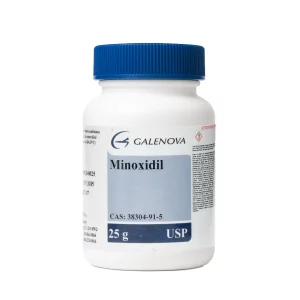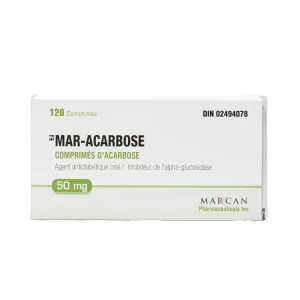Your cart is empty.
Your cart is empty.
Rapamune is the brand name for sirolimus, a prescription drug originally developed to prevent organ rejection after transplant surgery. It works by slowing down certain immune responses in the body. But beyond its original use, Rapamune is gaining attention for another reason: its possible effect on how the body handles energy and nutrients.
Is Rapamune for logevity a possible option for you? Can it support better metabolism and healthy aging? And what does the research really say? This article explores what we know so far, what scientists are still studying, and how some people are using it today. If you’re exploring long-term wellness strategies, especially those involving metabolic health, this will give you an easy-to-understand overview.
Rapamune is a prescription drug also known as sirolimus. It belongs to a class of medications called mTOR inhibitors. These drugs slow down a pathway in the body called the mTOR pathway.
Originally, doctors used Rapamune to help transplant patients by calming the immune system. But now, researchers are exploring its role in longevity, immune balance, and metabolic regulation. The mTOR pathway controls how cells grow and repair. Since growth and repair are deeply tied to how our body handles food and energy, this pathway is also connected to how our metabolism functions.

Metabolic health means your body can efficiently manage energy. That includes using glucose (sugar), breaking down fat, and storing nutrients properly.
When your metabolic system is off balance, problems like insulin resistance, belly fat, and chronic inflammation can appear. These issues can lead to bigger concerns like diabetes and heart disease.
As people age, metabolism tends to slow down. Insulin doesn’t work as well, glucose tolerance decreases, and fat begins to collect in less healthy places. Scientists believe targeting certain cellular pathways, like mTOR, might help slow or reverse these metabolic changes.
Rapamune affects the mTOR pathway, which is a key system in the body that controls growth and metabolism. When this pathway is too active, cells focus too much on growing and not enough on cleaning up or repairing themselves. By slowing down the mTOR pathway, Rapamune encourages the body to switch into a mode of maintenance and energy efficiency. This shift may help cells burn energy more cleanly and improve how the body uses glucose.
This is why Rapamune for metabolic health is being studied. It may improve insulin sensitivity (how well the body reacts to insulin), support better glucose tolerance, and reduce chronic inflammation linked to aging. It’s not about speeding up metabolism. Instead, it’s about helping the body regulate it more healthily.

Animal research has provided most of what we know so far about Rapamune and metabolism. In studies on mice, Rapamune has helped improve insulin sensitivity, glucose tolerance, and even reduce fat mass in some cases.
For example, one study showed that mice taking low doses of rapamycin (the compound behind Rapamune) had better blood sugar control and healthier fat distribution. Another study on marmosets, a type of monkey closer to humans, showed similar metabolic benefits. Researchers also observed improvements in how cells produce energy. Mitochondria, the “powerhouses” of cells, worked more efficiently in some Rapamune-treated animals.
However, the effects depend on dosage, duration, and even timing. Some benefits appeared only with intermittent rapamycin use, not daily use. Human studies are still limited, but researchers are starting to measure things like glucose levels, insulin responses, and fat metabolism in clinical settings.
Rapamune is also being studied in relation to Rapamune for immune function, since immune and metabolic pathways are closely connected. Early findings suggest that balancing one system can influence the other.
The following section is informative and does not substitute for an informed opinion given to you by a licensed expert. Always seek advisement with a professional first. Some longevity-focused users are already exploring Rapamune as part of a broader health routine. These users usually take small doses, often once per week, under the care of a physician.
They also track metabolic markers like:
This use is still experimental. Rapamune for longevity should always be done with professional guidance. The idea is not to replace healthy habits, but to complement them. In this context, Rapamune for metabolism is one piece of a bigger picture that includes nutrition, exercise, sleep, and stress management. Users note that changes are gradual and that consistent monitoring is key.
Before considering taking Rapamune, please consult with a licensed care team, Discuss your options openly and see if this is the best way forward. Rapamune is not officially approved for metabolic health. That means it should only be considered under medical supervision.
Its impact depends on many personal factors: age, existing metabolic conditions, lifestyle, and even genetics. Some people may respond better than others. Doctors help tailor the dose, often starting with 1mg per week or less, and adjusting based on lab results and health goals.
It’s also important to avoid overpromising. Rapamune is not a cure for aging or metabolic issues. It is one tool among many in the quest for long-term health. If you have an autoimmune condition, your doctor may also explore how Rapamune and autoimmune conditions interact with metabolism and energy balance.
Rapamune is a unique medication that’s now being studied for much more than its original use. From metabolic balance to immune regulation, its role in health and longevity is only beginning to unfold. Early research is promising, especially when it comes to energy regulation and insulin sensitivity. But real-world use must be cautious, intentional, and medically supervised.
If you’re considering this path, work closely with a health professional. And remember, lasting wellness always involves multiple pillars: movement, nutrition, recovery, and mindset. Rapamune may support those efforts, but it’s not a standalone solution.
Rapamune may help improve how the body manages glucose and fat by slowing down the mTOR pathway. But results vary between individuals.
It is not a weight loss medication. However, it may help regulate fat storage and blood sugar, which can support better body composition.
Animal studies show improved insulin signaling in some models. Human research is still limited but ongoing.
No. Rapamune is not approved for diabetes treatment. It is being studied for metabolic support in broader health contexts.
Most longevity users take low weekly doses. The right dose should always be decided by a doctor based on lab testing and health goals.
Blagosklonny, M. V. (2013). Rapamycin extends life and health span because it slows aging. Aging, 5(8), 592-598.
https://pmc.ncbi.nlm.nih.gov/articles/PMC3796212
Lamming, D. W., et al. (2012). Rapamycin-induced insulin resistance is mediated by mTORC2 loss and uncoupled from longevity. Science, 335(6076), 1638-1643.
https://pubmed.ncbi.nlm.nih.gov/22461615
Wilkinson, J. E., et al. (2012). Rapamycin slows aging in mice. Aging Cell, 11(4), 675-682.
https://pubmed.ncbi.nlm.nih.gov/22587563


Minoxidil 25mg - Oral vasodilator for blood pressure management. Cardiovascular foundation support, pharmaceutical-grade standards, expert monitoring required.

Acarbose 50mg 120 Tablets - Gentle introduction to glucose control. Three-times daily with meals, precision-formulated tablet strength.

Dasatinib 20mg 60 Tablets - Flexible pediatric-strength dosing option. USP standards compliance, anytime administration, gradual increase capability.
Unlock savings on bundles and elevate your online experience today!